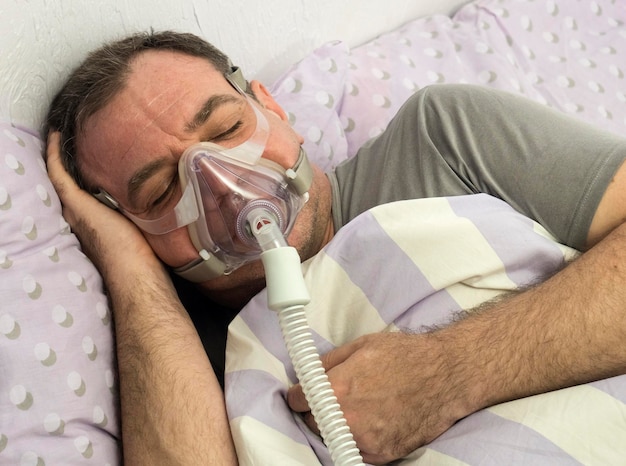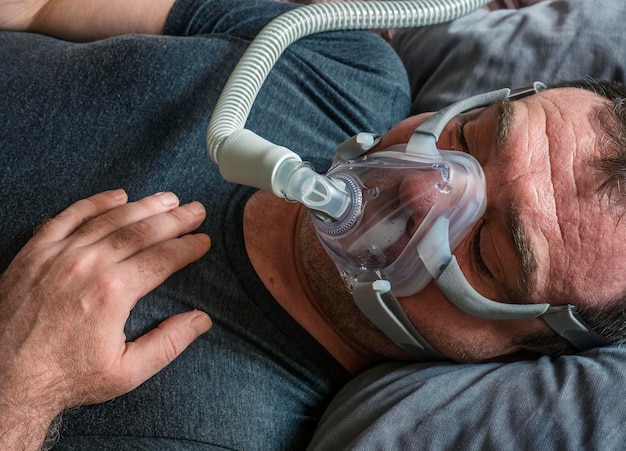Sleep is essential for our health and well-being. A good night’s rest rejuvenates the mind, repairs the body, and is fundamental for optimal functioning. Yet, for millions of people worldwide, sleep disorders like sleep apnea disrupt this vital process, leading to fatigue, decreased productivity, and even serious health complications. Understanding and treating sleep apnea can significantly improve your sleep and health, offering a path to a revitalized life. In this article, we will explore the causes, symptoms, and effects of sleep apnea, and discuss how various treatments can transform your quality of life.
Sleep Apnea Symptoms
Sleep apnea is a common sleep disorder that occurs when your breathing is interrupted during sleep. These interruptions can last from a few seconds to minutes and may happen multiple times per hour. Such disruptions not only fragment your sleep but can also lead to decreased oxygen levels in the blood, putting a strain on your cardiovascular system. This disruption can lead to poor sleep quality and has various effects on your health, including increased risks for serious conditions like heart disease and diabetes.
The prevalence of sleep apnea is rising, with estimates suggesting that millions of people remain undiagnosed. This disorder affects people of all ages, though it is more common in older adults and those who are overweight. The lack of awareness and understanding surrounding sleep apnea means many individuals suffer needlessly, unaware that effective treatments are available.
Causes of Sleep Apnea

Several factors contribute to sleep apnea, including:
Obstructive Sleep Apnea (OSA): This is the most common form, occurring when throat muscles relax excessively during sleep, blocking the airway. The collapse of the airway causes breathing to stop momentarily, jolting the sleeper awake and disrupting their rest.
Central Sleep Apnea: This less common type occurs when the brain fails to send the proper signals to the muscles that control breathing. Central sleep apnea is often associated with certain medical conditions, such as heart failure and stroke, and may require different treatment approaches than OSA.
Complex Sleep Apnea Syndrome: This is a combination of both obstructive and central sleep apnea, requiring a nuanced approach to diagnosis and treatment. Managing this syndrome often involves a combination of therapies that target both types of apnea.
Other contributing factors include obesity, nasal congestion, smoking, alcohol use, and a family history of sleep apnea. These risk factors can exacerbate the condition, making lifestyle interventions an important component of treatment.
Recognizing the Symptoms
Recognizing the symptoms of sleep apnea is crucial for diagnosis and treatment. Common symptoms include:
- Loud Snoring
- Episodes of Stopped Breathing During Sleep
- Gasping for Air During Sleep
- Morning Headaches
- Insomnia
- Excessive Daytime Sleepiness
- Difficulty Concentrating
If you experience any of these symptoms, it’s important to consult a healthcare professional for a proper diagnosis. Early identification and management of sleep apnea can prevent complications and improve overall well-being.
Effects of Sleep Apnea
Untreated sleep apnea can lead to various health problems, impacting both physical and mental health. Some of the effects include:
Cardiovascular Problems: Sleep apnea can increase the risk of high blood pressure, heart attack, and stroke.
Daytime Fatigue: Interrupted sleep leads to excessive daytime sleepiness, affecting daily activities and increasing accident risks.
Complications with Medications and Surgery: Anesthesia and sedatives can further relax the airway muscles, leading to complications.
Liver Problems: Sleep apnea is linked to abnormal liver function and increased risk of fatty liver disease.
Addressing these effects early with proper treatment can significantly improve your health and quality of life.
Sleep Apnea Diagnosis
Diagnosis typically involves a sleep study, which can be done at home or in a sleep center. This study monitors your breathing, heart rate, and oxygen levels during sleep. These studies provide detailed insights into your sleep patterns, helping healthcare providers determine the severity of your sleep apnea.
While traditional sleep studies are conducted in specialized sleep labs, advancements in technology have made home-based testing more accessible. Home sleep apnea tests are convenient and can provide sufficient data for diagnosing obstructive sleep apnea.
CPAP Treatment

CPAP therapy involves using a machine that delivers air pressure through a mask, keeping your airway open while you sleep. It is the most effective treatment for obstructive sleep apnea and can significantly improve sleep quality and reduce symptoms.
Adherence to CPAP therapy can sometimes be challenging due to discomfort, but with proper mask fitting and gradual acclimatization, most individuals can successfully integrate CPAP into their nightly routine.
Additional Treatment Options
Lifestyle Changes
Simple lifestyle changes can also help manage sleep apnea:
- Weight Management
- Exercise
- Avoiding Alcohol and Smoking
Oral Appliances
Oral appliances, designed to keep your throat open, can be an alternative to CPAP. They work by repositioning the jaw or tongue to prevent airway blockage and are custom-fitted by dental professionals.
Surgery
In certain cases, surgery may be recommended to remove or shrink tissue, reposition the jaw, or implant devices to keep the airway open.
Insomnia and Sleep Apnea
Sleep apnea and insomnia often coexist, further complicating sleep quality. People with both conditions may struggle to fall asleep and stay asleep, making it even more essential to pursue effective treatment plans that address both issues simultaneously.
How to Improve Sleep Quality
Improving sleep hygiene can enhance treatment outcomes:
- Maintain a consistent sleep schedule
- Create a restful sleep environment
- Avoid caffeine and heavy meals before bed
- Incorporate relaxation techniques
Conclusion
Sleep apnea can have a profound impact on your quality of life, but with the right treatment, you can achieve restful sleep and improved health. Recognizing symptoms and seeking a proper diagnosis are the first steps. Whether through CPAP therapy, lifestyle changes, oral appliances, or surgery, effective treatment can transform your nights and days.
If you suspect you have sleep apnea, consult a healthcare professional to explore your options. With commitment and the right support, you can reclaim the restful nights and vibrant days you deserve.
